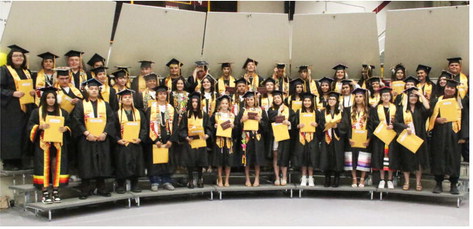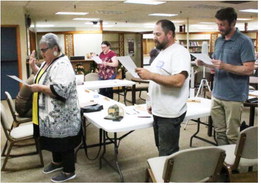Federal Legislation Introduced To Improve Train Safety
Following a series of train accidents across Montana in the last year including a fatal crash in Bainville during May, U.S. Sen. Jon Tester, D-Mont, is co-sponsoring a bill to improve train safety in rural communities.
Tester and Sen. Deb Fischer, R-Neb., introduced their bipartisan Right Track Act Friday, Nov. 20, to bolster train safety in eastern Montana and other rural communities.
“After far too many preventable tragedies at Montana rail crossings, we’ve got to provide rural communities with the resources they need to stay safe,” Tester said. “My bipartisan Right Track Act will provide towns across our state with critical investments to improve safety infrastructure and educate the public about the risk of collisions at grade crossings. The fact is, we can’t let rural America get left behind when it comes to rail safety, and I’m going to work aggressively to get this bill passed as soon as possible.”
A Sidney man, Rocky Norby, died after an Amtrak passenger train collided with a John Deere 4940 sprayer tractor at mile marker 653 on U.S. Highway 2 between Bainville and Culbertson on May 29. Two men from Culbertson died near the same crossing in August 2019.
“Rail transportation is critical to keeping America’s businesses and communities running, but more can be done to improve rural grade crossing safety,” Fischer said. “This legislation will enable the FRA and FHWA to make recommendations, facilitate public outreach and target resources to keep our Heartland safe.”
The Right Track Act contains three main components:
•It will help counties and states better target safety infrastructure investments by requiring the Federal Rail Administration and the Federal Highway Administration to provide recommendations to public and private stakeholders to reduce the number of highway/rail collisions at public at-grade crossings in counties with a population of 10 or fewer people per square mile.
•It will increase public safety awareness by requiring the FRA and FHWA to conduct a public outreach and educational initiative to reduce collisions at grade crossings in rural counties.
•And it will provide a dedicated pool of funding for rural crossings by increasing the authorization for the Consolidated Rail Infrastructure and Safety Improvements program by $10 million per year for five years, and before any funds are distributed, that funding is set-aside for grants to improve grade crossing safety in rural counties. This funding can be used to install gates, add bells and lights, and creating overpasses at train crossings.
In addition, Tester recently introduced bipartisan legislation to identify and address instances of blocked railroad crossings by examining more than 200,000 crossings across the country.
“We’ve got to do a better job ensuring that our highway/railroad crossings aren’t blocking critical routes for emergency responders or causing significant delays or traffic,” Tester said. “In order to do that, Congress needs better data on these blocked crossings so that we can make our highways safer, more efficient, and get people where they need to go a lot faster. That’s exactly what this bipartisan bill will do.”
In December 2019, the Federal Railroad Administration opened a Blocked Crossing Incident Reporter portal that the public and law enforcement could report blocked grade crossings to the agency. Tester’s bill would authorize this portal as a three year pilot program, and the FRA would be required to analyze submissions to the portal based on key criteria and provide an analysis to Congress. By authorizing the blocked crossing portal and examining the results, Congress can better understand the scope and severity of blocked crossings and develop targeted, effective policy to address them.
The bill also requires the Federal Highway Administration to evaluate the requirements of the Section 130 railway-highway grade crossing program to identify any additional flexibilities in the program that could support states’ efforts to make grade crossings safer.
Last month, Tester personally secured a hearing before the Senate Commerce Committee on recent cuts to the Empire Builder service across Montana’s Hi-Line. He also helped secure $1 billion for Amtrak in the CARES Act to maintain long distance routes during the pandemic and led the charge to restore ticket agents in Amtrak stations in Havre and Shelby.


